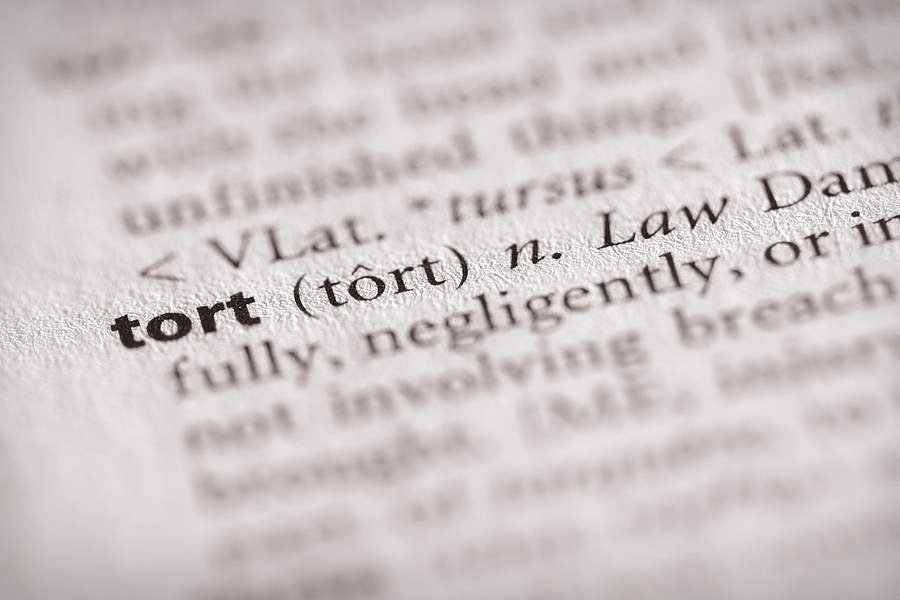On March 24, 2023, Gov. Ron DeSantis signed House Bill 837 into law, significantly changing the state’s civil litigation landscape. The new package claims to cut down on “frivolous lawsuits,” but the changes create specific challenges to accident victims seeking justice.
The new tort reform not only significantly reduces the timeframe for injured accident victims to file lawsuits against those who hurt them, but it also limits the compensation they can recover when they do file and protects businesses and insurance companies against lawsuits and bad faith claims.
Here is a closer look at how the new tort reform actions in Florida can hurt you:
It Reduces the Statute of Limitations for General Negligence Claims

HB 837 immediately cut Florida’s four-year statute of limitations for filing general negligence claims in half. Now, Floridians have just two years from their accident to file a personal injury lawsuit if they want to recover damages from the person or party who caused their injuries.
This strict two-year deadline applies to:
- Car accidents
- Truck accidents
- Motorcycle accidents
- Pedestrian accidents
- Boating accidents
- Slip and Fall injuries
- Wrongful death
Florida’s new statute of limitations makes some exceptions. For example, service members have more time since they cannot appear and participate in the claims process while on active duty.
If you have questions about whether your accident claim falls within the new deadline, speak with a qualified Florida personal injury attorney today.
It Modifies Florida’s Comparative Negligence Rule
Courts use comparative negligence to measure the amount of damages a plaintiff can recover in an accident based on their percentage of fault. Before HB 837, Florida followed a pure comparative negligence rule that allowed residents involved in accidents to recover some compensation in an accident regardless of their percentage of fault.
The new law switches Florida to a modified comparative negligence rule. Now, residents who bear more than 50 percent of the blame for their accidents cannot collect any compensation.
This standard affects all personal injury and wrongful death claims except those involving medical malpractice.
It Limits What Plaintiffs Can Offer as Admissible Evidence for Medical Expenses
Accidents of any kind can result in serious and catastrophic injuries that require expensive medical treatment. Medical bills can add up, especially if you or your loved one must miss work due to these injuries. Medical expenses are common damages for which accident victims seek compensation through a personal injury claim.
Previously, plaintiffs could offer the total amount of medical bills charged for services rendered to prove medical expenses. Now, only the amount paid for services is permissible, regardless of the payment source.
Proving past unpaid medical bills gets slightly confusing and relies on the plaintiff’s health care coverage. Those with private health insurance may only use the amount their insurer would pay for those services plus their own share (copays and deductibles). For accident victims without health insurance, the court will use 120 percent of the Medicare reimbursement rate in effect when providers render the services. If no Medicare rate exists, the court will use 170 percent of the Medicaid rate.
A letter of protection serves as an IOU between the plaintiff and the doctor. It promises payment for services from the settlement. Plaintiffs who use a letter of protection rather than going through their health insurance can only offer as evidence the amount their insurer would pay for services, plus their own share.
Some doctors use a third party to handle medical bills that fall under a letter of protection. The court will only allow as evidence the amount the third party agreed to pay the doctor for the right to receive payment.
For future medical expenses, the court limits admissible evidence to the amount the plaintiff’s health care coverage would pay, plus the plaintiff’s share. For those without health insurance, if Medicare or Medicaid apply, the court will use the same percentage for future expenses as it does for past expenses.
It Establishes New Negligent Security Liability Protections
In negligent security cases, owners of commercial and business properties should know more about potential dangers to guests than tenants or customers, and they should take reasonable measures to ensure their safety.
For example, the operator of an apartment complex would know or should know if the complex is in a high crime area and should take steps to keep residents safe, such as keeping parking lots lit at night and having deadbolts and peepholes in each unit’s doors.
If the operator of the apartment complex fails to take these steps to ensure tenant safety and a criminal attacks someone on the property, the victim of that attack could seek compensation for their damages from the negligent apartment operator.
Florida’s new tort reform package now provides liability protections for owners and operators of multi-family residential units who put in place certain safety and security features, such as:
- Adding a security camera facing every entrance and exit with at least 30 days of recording footage
- Lighting the parking lot from dusk to dawn
- Adding a one-inch deadbolt in every unit door
- Adding a locking device on each window, exterior sliding doors, and other doors not used for community purposes
- Having locked gates on fences surrounding pool areas
- Adding a peephole or viewer on each unit door that does not have a window or is not next to a window
It Shields Insurers From Bad Faith Claims
Victims of accidents caused by the negligence of another often must deal with insurance companies to get compensation for their damages. Insurers often make lowball settlement offers that fall short of the full amount of damages accident victims suffer. Accident victims often hire personal injury attorneys to negotiate a fair settlement with insurers.
Sometimes these negotiations fall short. The insurer reneges on its obligation to policyholders by rejecting their legitimate claims. Or they may not process it within a reasonable time. When insurers refuse to play fair, the policyholder may bring a bad faith claim against them.
But now, insurers have protections against these claims. First, the new law states that negligence alone no longer provides grounds for a policyholder to use as evidence of bad faith against an insurer. Policyholders can no longer bring a bad faith claim if the insurer tenders the policy limits or the amount the policyholder demands within 90 days of receiving notice of the insurance claim and all the documents to support the demand. And, if the case does go to trial, neither party can mention the law in any form in a bad faith claim.
It Creates a New Lodestar Attorney Fee Presumption

The legal system has a contingency fee multiplier system to compensate attorneys and remove some of their risks when representing a client on a contingency fee basis. The court can consider and award contingency fee multipliers to attorneys for various reasons. But Florida’s tort reform makes it more difficult for courts to use these multipliers. It establishes a strong presumption that the lodestar fee (the number of hours spent on a case multiplied by an attorney’s reasonable hourly rate) is both reasonable and sufficient.
In rare cases, the court can grant an exception if the lawyer shows evidence that the plaintiff could not otherwise retain competent counsel.
One issue with the new lodestar attorney fee presumption is that it may discourage more experienced lawyers from taking some cases, leaving plaintiffs with less experienced representation.
Contact Dolman Law Group Accident Injury Lawyers for More Information
Florida’s new tort reform will significantly hinder Florida accident victims from seeking compensation from the negligent party that caused them harm.
But you can rest assured that Dolman Law Group’s Florida personal injury lawyers are nearby, with 15 locations throughout the state.
Our legal team is up-to-date on the new law’s changes and challenges. We will meet with you one-on-one to discuss your case regardless of your type of accident, identify all potential sources of compensation, and aggressively pursue maximum compensation so you can focus on your recovery.
To learn more about our services, please contact us online or call (727) 451-6900 today.





